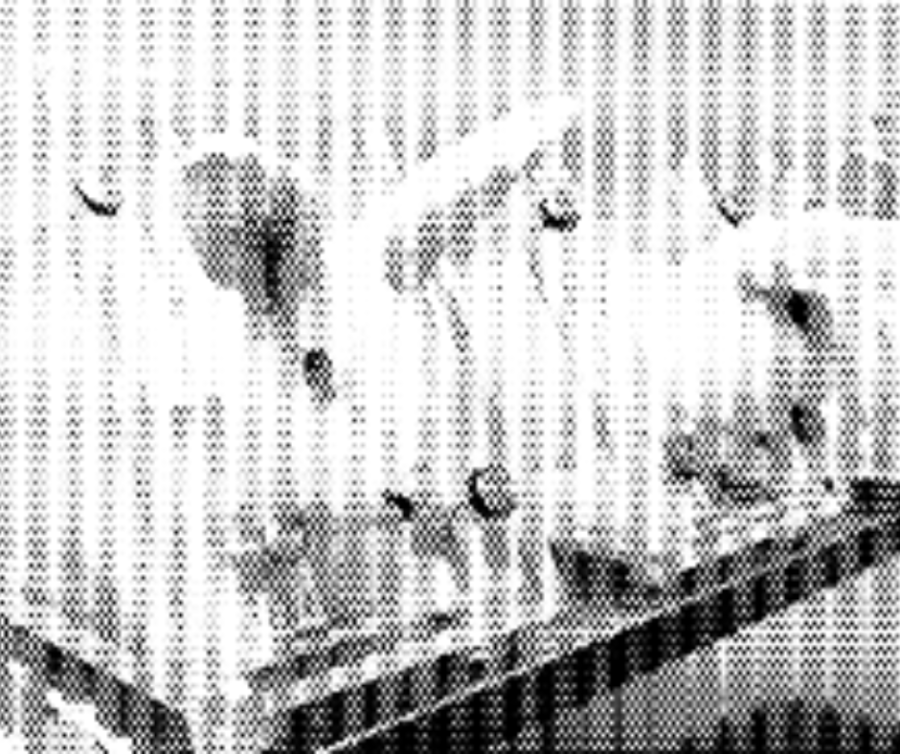Unethical conditions of animal testing
Animal testing is never OK, despite claims that it benefits humans in medical studies
Animal testing continues to be a hot button topic for many scientific communities
April 18, 2023
There are two categories that fall under the umbrella of animal cruelty: neglect and abuse.
Why should you care? Ask yourself: what if you were in the animal’s position? Being put in their place, you may finally understand the importance of education focusing on animal cruelty and testing. Animals should never be put in a cruel position, even though people have mixed feelings about the topic of animal testing, especially in the medical field.
In most cases, education plays a major role in the dispute over animal testing, as most believe that it may be an advantage to humankind; however, it has been proven that animal testing has a particularly low chance of actually benefitting people. As stated by a neurologist, preventive medicine specialist, and fellow at the Oxford Centre for Animal Ethics, Aysha Akhtar, in “The Flaws and Human Harms of Animal Experimentation,” “Three major conditions undermine this confidence and explain why animal experimentation, regardless of the disease category studied, fails to reliably inform human health: (1) the effects of the laboratory environment and other variables on study outcomes, (2) disparities between animal models of disease and human diseases and (3) species differences in physiology and genetics. I argue for the critical importance of each of these conditions.”
When a test was run on pregnant animals to determine outcomes that may benefit humans, there were no cases of congenital disabilities. But, when the same sleeping pill in the test was administered to pregnant women, it resulted in severe deformities that affected upwards of 10,000 babies. A singular test out of all of the tests that have been performed supports the idea that animal traits most commonly do not apply to humans.
Even though people’s ideas of convenience for the human race defer the idea of animal testing, it has been demonstrated that test outcomes are commonly unreliable. There are many different alternatives to using animal testing, including artificial human skin as well as digital resources that can be used instead of harming animals for the chance of a positive outcome for scientists. The idea of alternatives confirms that other resources are available in place of animals for the education of new drugs and other administrative purposes.
One may think that animals being tested are protected and safe, but most animals being tested are not in a safe environment. An organization that is known for protecting animals while being tested is the Animal Welfare Association (AWA), but even after the movement, over 25 million subjects are still left vulnerable. According to the article “Should Animals Be Used for Scientific or Commercial Testing?” from ProCon.org, “Only 5% of animals used in experiments are protected by US law.”
Innumerable groups of animals are bred for the situation of animal testing, often only getting to experience the conditions in labs, as many later die in labs. Animals are frequently bought and sold by different labs, being shipped across the world and causing extreme stress for the animal. Most of the animals who are put into the condition of animal testing have never experienced a life of being cared for.
Lab conditions are unnatural and brutal. Circumstances that test subjects experience are scaled-down cages or enclosures, noisy areas, mental disorders, unsanitary conditions, not to mention virus outbreaks. Other brutal conditions that animals experience in labs include being burned, shocked, isolated, starved, poisoned, drowned, drugged and brain damaged. Animals who experience conditions in labs are treated inhumanely by testers.
Animal testing is a very controversial topic among people. Some individuals believe that animal testing is a considerable method to test medical and consumer products, while others maintain the idea that animal testing is cruel.
“I think they should just ban animal testing, period, because animal testing is performed in a way where they rub chemicals in their eyes,” said RV senior Brenna Delgado. “That’s just not good at all; that’s inhumane.”
As opinions on animal testing differ, many reasons back up the argument that animal testing is more harmful than beneficial.
The probability of animal testing going wrong is extremely high and can be prevented with the alternatives available today. Due to having alternative options, a lack of protection from the law, unethical conditions in the lab and the chance of disease outbreaks, animals should never be tested. Animal testing puts its subjects in harmful situations and should not be performed.







